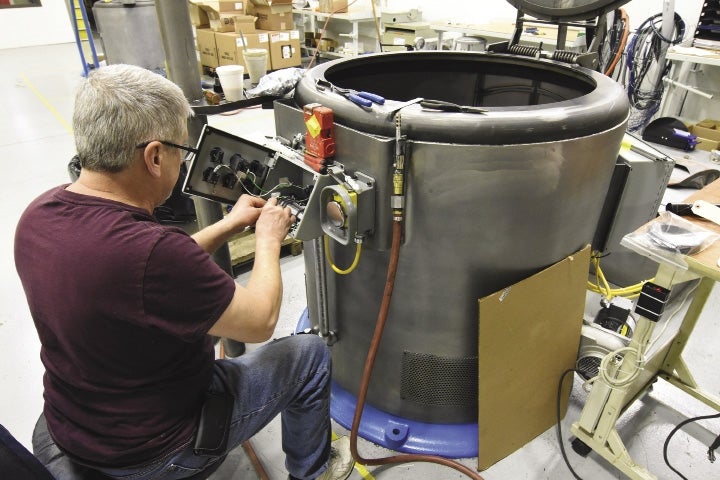Manufacturing got a lot of attention in this election year, and now that the results are in, many smaller companies are feeling cautiously optimistic about what the future holds.
The potential for renegotiated trade deals from a Trump Administration could mean changes in export revenue for Massachusetts, which brings in billions of dollars a year from overseas.
On a more local level, years of talk of more biomanufacturing activity in Central Massachusetts could start to take off within the next year.
Uncertain future for exports
In 2015, Massachusetts ranked 18th in the nation for export revenue, bringing in about $25.2 billion from other countries.
Smaller companies, like many of the manufacturers in Central Massachusetts, usually stand to benefit from free trade agreements, according to the Massachusetts Export Center.
But now that Donald Trump has been elected president, the future is uncertain.
Trump has promised to renegotiate trade deals to bring back some of the manufacturing jobs that were lost to companies overseas decades ago.
Conversely, President Barack Obama has said pulling out of trade deals could cause worldwide disruptions.
More biomanufacturing action
In 2015, state officials singled out Central Massachusetts as the future Kendall Square of biomanufacturing.
That talk gained some traction this year when the state designated a future 500,000-square-foot biomanufacturing site in the city, and now a group of stakeholders are in talks with California-based LakePharma to persuade the company to become the site’s first tenant.
Further north, a recently rezoned parcel of land in Devens is rumored to be a future site for a large pharma employer.
Earlier introduction
It’s not a secret that the manufacturing sector is facing a looming worker shortage because of the number of older workers set to retire in the coming years.
In response, a lot of emphasis has been placed on vocational education, job training programs for inmates and workforce development through industry groups.
School districts, including the Leominster Public Schools, are looking into ways to introduce manufacturing as a career path to students as early as possible – even before high school – to give them positive perceptions of the industry.

